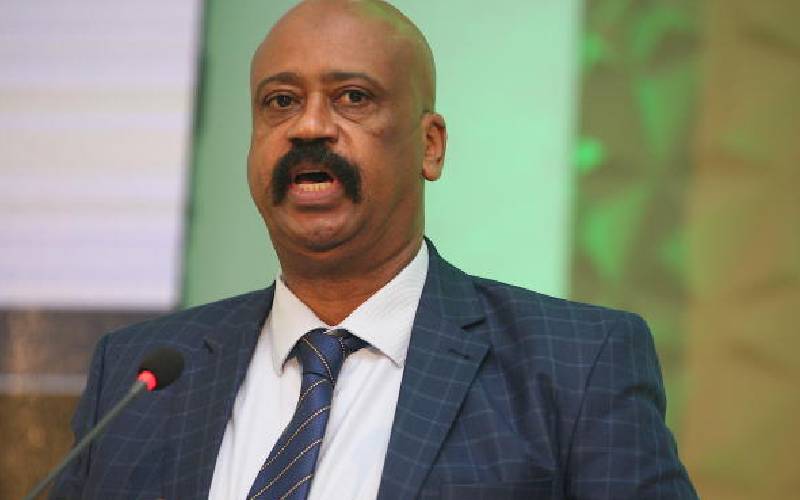×
The Standard e-Paper
Home To Bold Columnists

Nairobi Metropolitan Director General Lt- General Mohammed Badi speaking during the launch of the Nairobi Circular Economy. [Wilberforce Okwiri, Standard]
Perched on the 24th floor of the city’s most iconic building, accorded a bird’s eye view of the city and recently promoted to a lieutenant general, Mohamed Badi is not sitting any pretty in his high office.